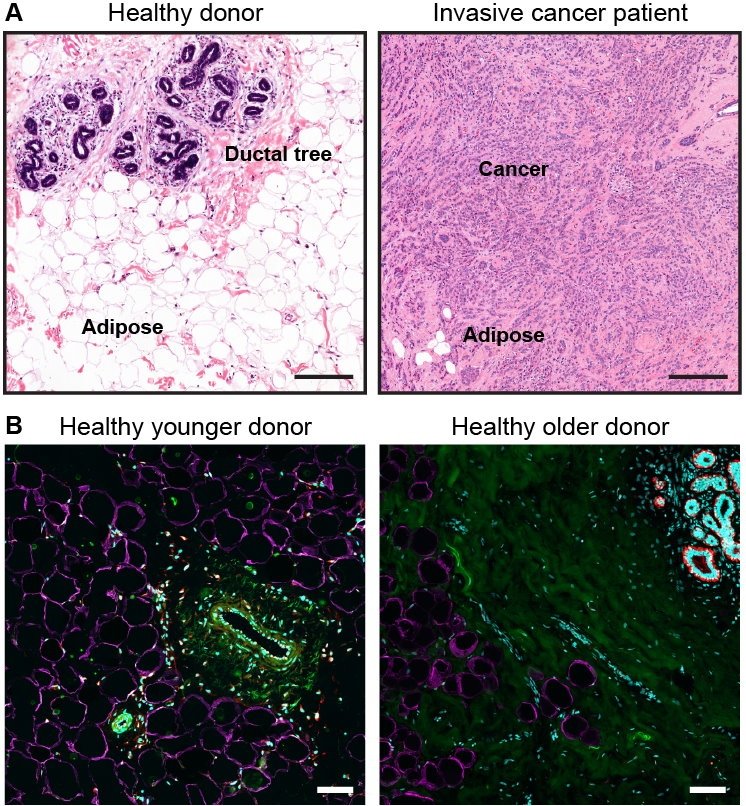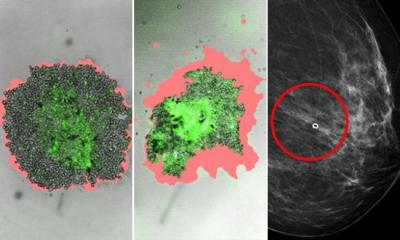
Image source: University of Turku
News • Research into fat cells
Healthy adipocytes keep breast cancer at bay
Researchers have found a possible explanation as to why higher breast density and older age increase the risk of breast cancer.
In a new study published in Science Advances, researchers at the Turku Bioscience Centre, InFLAMES Flagship of the University of Turku and Turku University Hospital, Finland, reveal that healthy fat cells in the breast, also known as adipocytes, secrete a potent factor called IGFBP2, which acts as a barrier against invasive breast cancer progression. "Adipocytes generally get a bad rap for promoting cancer progression, but this study demonstrates that healthy breast fat can play a protective role in the maintenance of tissue homeostasis and cancer containment," explained Dr. Emilia Peuhu, a key collaborator in the study. “It's time to re-evaluate our assumptions and recognize the important role of these unsung heroes.”
Breast cancer patients who experience the transition from pre-malignant ductal carcinoma in situ (DCIS) to invasive ductal carcinoma (IDC) face a considerably poorer prognosis and an increased risk of developing metastatic disease. The research team's work focuses on identifying factors that impede this invasive progression, with IGFBP2 emerging as a key factor secreted by healthy adipocytes. In addition to the loss of adipocytes that occurs as women age, this study found that older women had reduced expression of IGFBP2, suggesting that the anti-cancer activities of breast adipocytes might also decrease with age.
While restoring IGFBP2 into the mammary environment might not be possible, the use of antibody-based inhibitors of IGF-II could help to contain non-invasive breast lesions
James Conway
InFLAMES group leader, Professor Johanna Ivaska, the principle investigator on the project, expressed their astonishment at the findings, highlighting that, "increasing age and higher breast density, with fewer adipocytes, are two well established risk factors for the development of breast cancer. Our research provides a possible explanation for this increased risk, as we found that IGFBP2 levels are also reduced in older individuals and that healthy breast adipocytes can secrete factors, such as IGFBP2, to inhibit tumour progression.”
The implications of this discovery extend to the understanding of mammary density and its connection with poorer prognosis. Dr. James Conway, the lead researcher of the team, added, "While restoring IGFBP2 into the mammary environment might not be possible, the use of antibody-based inhibitors of IGF-II could help to contain non-invasive breast lesions by acting in a similar fashion to IGFBP2 itself, which we have already observed in our model systems.”
The team is now exploring the therapeutic avenues that have opened up as a result of these recent findings.
Source: University of Turku
14.07.2023











